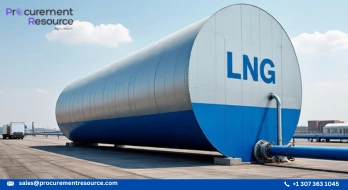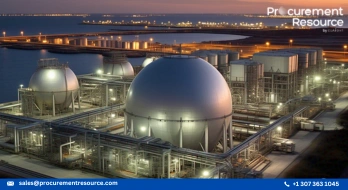Chevron facing a discord between its management and downstream workers
.webp)
Chevron's downstream employees at their Western Australia LNG projects have reportedly turned down the company's proposed enterprise agreement (EA). This decision comes just before the planned strike on 7 September. Out of the 470 eligible staff members at Chevron's Wheatstone LNG and Gorgon LNG projects, a mere three approved of Chevron's compensation and conditions proposal, while a significant 449 opposed it. Additionally, 12 chose not to vote.
Request Access For the Latest Price Trends of LNG
This decision was preceded by the Australian union group, Offshore Alliance (OA), whose members at these two downstream plants had earlier shown support for protected industrial action. Furthermore, staff from the Wheatstone offshore platform also showed their support for strikes in a distinct vote. In response to these developments, a representative from Chevron mentioned on 1 September that they are keen on addressing the differences with their employees and their representatives. They aim to do this through further negotiations facilitated by the Fair Work Commission. Chevron has also sought mediation assistance from the Fair Work Commission.
On the other hand, the OA, on 28 August, expressed its intention to commence protected industrial action, which is considered legal under Australian labor laws, from 7 September. This decision was attributed to Chevron's perceived reluctance to discuss a union-endorsed EA. The OA has the authority to initiate various forms of industrial action, ranging from work bans to complete work stoppages. OA's spokesperson, Brad Gandy, emphasized on 1 September that Chevron needs to reconsider its approach and address the concerns of their members earnestly.
In a related development, Australian company Woodside Energy and the OA reached an agreement on 24 August to prevent strikes at the North West Shelf LNG in Western Australia.
Analysts are closely monitoring the situation. Masanori Odaka, a Rystad analyst, commented on 1 September that while Japanese importers currently have sufficient LNG stocks, any disruption in the Australian projects might influence spot prices, especially if the strikes extend into the peak winter season of the northern hemisphere. However, he also noted that Japan has increased its nuclear and coal power generation capacity for this year, reducing the reliance on gas-fired power generation.
Read More About Liquefied Natural Gas Production Cost Reports - Get Free Sample Copy in PDF
In 2023, the primary recipient of Wheatstone's exports was Japanese utility Jera's Futtsu terminal, followed by Taiwanese state-owned CPC's Yung-An terminal. Meanwhile, the majority of Gorgon's LNG was shipped to Thailand's PTT's Map Ta Phut regasification terminal.
According to the article by Procurement Resource, the rejection of Chevron's proposed enterprise agreement by its downstream employees in Western Australia proffers the complexities in labor relations within the energy sector. As unions and companies grapple with terms and conditions, the potential disruptions in LNG projects could have ripple effects on global energy markets. While current stockpiles might buffer immediate impacts, prolonged disputes could influence global pricing, especially during peak demand seasons. Bot h Chevron and the unions must navigate these waters carefully, considering both immediate employee concerns and broader market implications.



